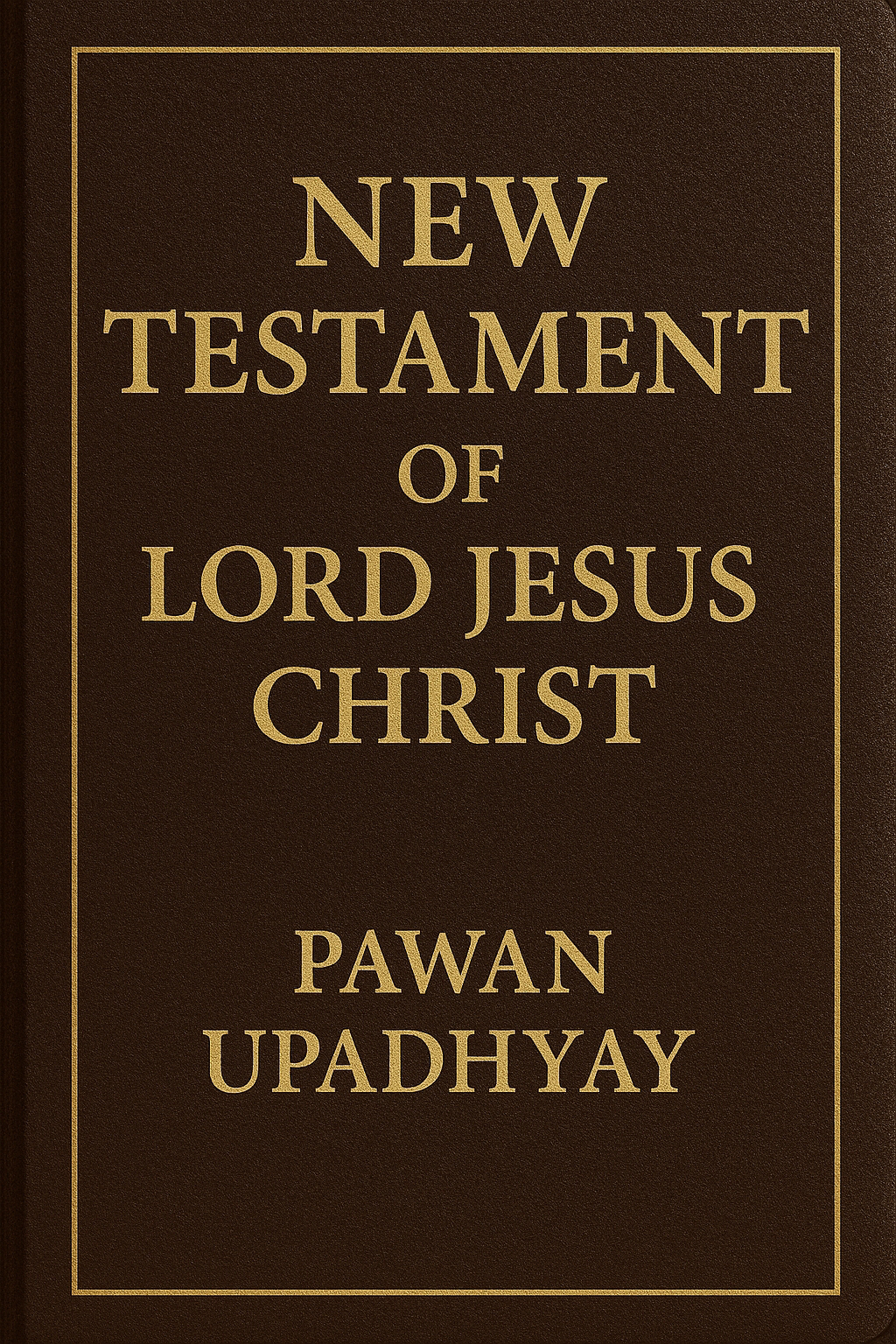⛪✝️[Pawan Upadhyay Bible] Gentiles, Hebrews, and Christians [Gospel of Phillip, Chapter 1]⛪✝️
Explanation :-
---
🔹 1. "A Hebrew creates a Hebrew, and [those] of this kind are called a proselyte."
Hebrew → Hebrew: This points to natural or traditional religious inheritance — passing down a religious identity (like Judaism) from parent to child or through conversion.
Proselyte: A convert who adopts the outward form of religion but may lack inner spiritual rebirth. The Gnostic view criticizes mere outer religion that lacks the Spirit.
Deeper meaning: Traditional religion may reproduce itself through teaching and ritual, but it often does not awaken the soul to divine truth.
---
🔹 2. "But a proselyte doesn't create another proselyte."
Converts made by human effort (without divine revelation) cannot pass on spiritual life.
Why? Because they have not been transformed inwardly — they repeat forms without essence.
Deeper meaning: True spiritual life comes from divine origin, not mere external religion or tradition.
---
🔹 3. "They're like copies of copies [Slaves] it's good enough for them that they come into being."
Copy of a copy: Symbolizes degeneration — far from the original divine image.
Gnosticism emphasized the "original light" or divine spark. Those who are just copies lack this inner spark.
Good enough that they exist: They settle for form without essence.
Deeper meaning: Many are satisfied with being religiously active but spiritually asleep.
---
🔹 4. "The slave seeks only freedom... the son claims his father's inheritance."
Slave: Represents those under the law, like the Old Covenant — obeying but not inheriting.
Son: Represents the spiritually awakened one who knows their place in the divine family.
Inheritance: Eternal life, divine knowledge (gnosis), union with the Father.
Deeper meaning: Only those who know God as Father claim their true inheritance — not just moral freedom but spiritual identity and destiny.
---
🔹 5. "Those who inherit the dead... inherit the dead."
To follow spiritually dead traditions (even if ancient) leads to spiritual death.
Gnostics often criticized blind adherence to outer forms without enlightenment.
Deeper meaning: You become what you follow. Follow lifeless teachings, and you inherit death. Follow the Living One (Christ), and you inherit life.
---
🔹 6. "Those who inherit the living are alive... inherit both the living and the dead."
Those in Christ (the Living One) are spiritually alive.
They gain wisdom from the past (dead) but live in the Spirit (the living).
Deeper meaning: True disciples can transcend time — they inherit all truth, because their source is living, not limited by history.
---
🔹 7. "The dead can't inherit anything... If the dead inherits the living... the dead will live even more!"
Spiritual transformation is possible — if a “dead” soul receives the living truth (Christ), they will awaken.
Inner Holy Spiritual Gnostic thought teaches that the divine spark in humanity can be revived by gnosis (knowledge of God).
Deeper meaning: There is hope for the spiritually dead — through revelation, even the dead can live more fully than ever.
---
🔹 8. "A gentile doesn't die... never lived in order that they may die."
Gentile here means someone who never awakened spiritually.
You must live spiritually first before you can sacrifice yourself (die to ego, illusion).
Deeper meaning: Without spiritual awakening, there's nothing to surrender. Spiritual life begins with knowledge of truth, which leads to transformation.
---
🔹 9. "Whoever has believed in the Truth has lived... is at risk of dying..."
Truth = Christ: In Gnostic writings, Christ is the revealer of Truth (Logos).
Believers are spiritually alive, but they face worldly suffering, even death, for their spiritual truth.
Deeper meaning: To live in Christ is to risk worldly rejection. Real life includes sacrifice.
---
🔹 10. "The world is created, the cities gentrified, and the dead carried out."
World is created: The material world is formed, but it’s not the ultimate reality.
Cities gentrified: Possibly symbolic of outward religious systems being purified or elevated.
Dead carried out: A separation between the spiritually dead and those being transformed.
Deeper meaning: The coming of Christ causes a spiritual upheaval — old systems are overturned, and spiritual death is exposed and removed.
---
🔹 11. "When we were Hebrews, we were fatherless — we had only our mother."
Fatherless: Without knowledge of the divine Father (God).
Only our mother: Possibly referring to Earth, the physical world, or the religious law (seen as maternal — nurturing but not fully divine).
Deeper meaning: Before spiritual rebirth, people are bound to the material or religious mother, without access to the Father (spirit and truth).
---
🔹 12. "But when we became Christians, we gained both father and mother."
Becoming Christian here doesn't mean just outer conversion, but inner awakening to Christ.
Father and mother: The fullness of divine origin — both spiritual authority (Father) and nurturing wisdom (Mother, often seen in Gnostic Sophia).
Deeper meaning: In Christ, we enter a complete spiritual family — the union of heaven (Father) and divine wisdom (Mother). We are reborn as whole beings, no longer fragmented.
---
🌟 Final Spiritual Insight:
This entire passage is a journey from imitation to authenticity, from religion to revelation, from death to life.
Hebrew → Proselyte → Christian
is the path from form → shadow → fullness
from law → imitation → truth





Comments
Post a Comment